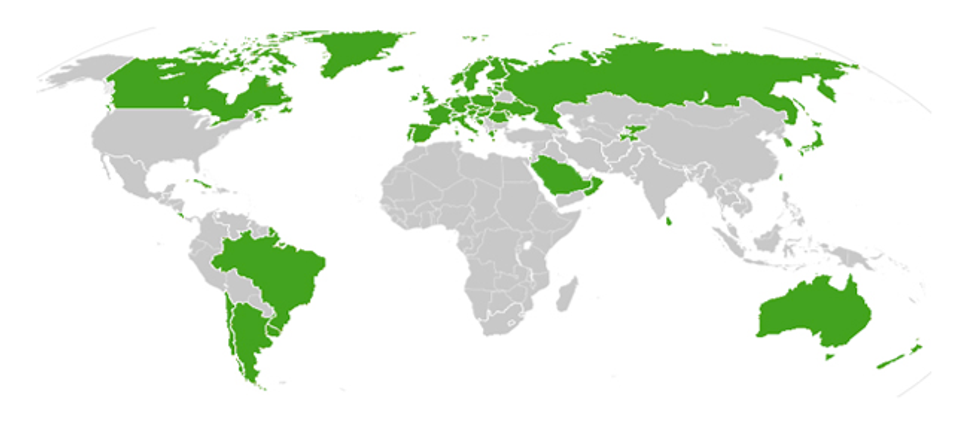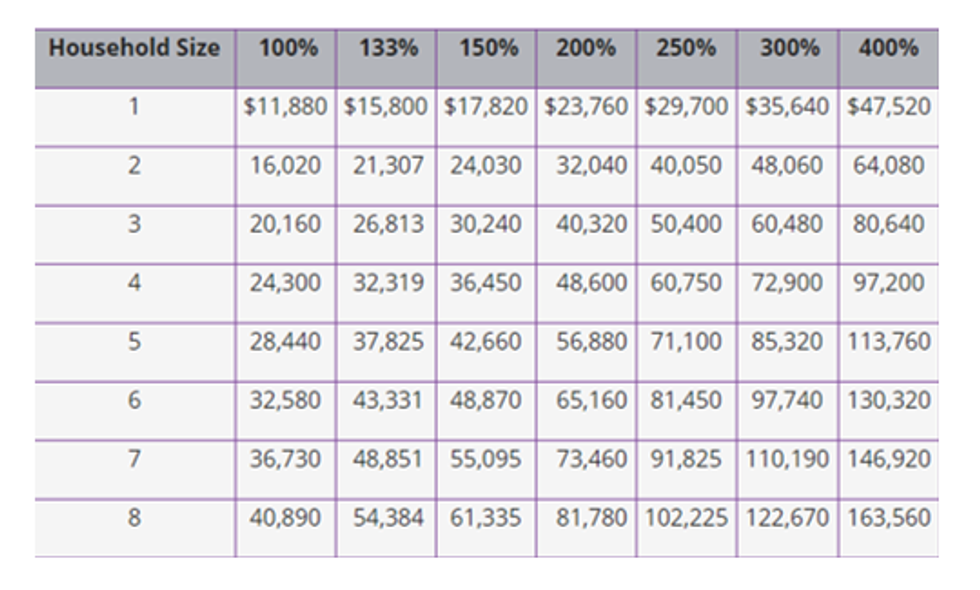So let’s get this right out in the open — I am an avid supporter of Universal Healthcare. I am also Canadian. I currently live in Iowa, and not only do I live in Iowa, but I live in the poorest county in the state of Iowa. According to US census data, approximately 20 percent of residents of the county live in poverty. Healthcare of any kind to most is a luxury that they simply cannot afford and that is just a snapshot of the nation.
Decatur County, while a tragic and poor place, does not even crack the top 100 most impoverished in the United States in both the per capita and median income measurements. I couldn’t imagine simply not being able to go see a doctor or go to the emergency room if I needed to because I literally could not afford it. One pundit, prior to the introduction of the Affordable Health Care Act, called these folks “Dead men walking.” For a country that prides itself on being "the greatest in the world," that reality for so many of its people makes me sick.
But that is not the world we live in today. After the introduction of the Affordable Health Care Act, so eloquently shortened to Obamacare, the world opened up to a lot of people. People who could not get healthcare insurance from private industry due to reasons like pre-existing conditions or, most importantly, the outrageous costs. Obamacare has provisions for the expansion on Medicare, to reduce total out of pocket costs to $6,600, and generally it corrals the Insurance Industry to act as insurance and not Gym Memberships. Generally, Obamacare has done a lot of good, but, is it enough? In my opinion, no.
So firstly let’s look at the international community. Universal Healthcare coverage is not a one-region or one-nation thing, it is an international expectation at this point. Here is a map of all the nations that currently provide their people with Healthcare:
The international community and this map speaks for itself; The United States of America is behind the rest of the world on this issue and generally the butt-end of a terrible joke. To be fair, this being different from the rest of the world isn’t any reason to change, but given the context of the situation it should really light a fire under their ass.
Another reason it doesn’t do enough is that it relies on the states far too much to take action. Medicaid is wonderful social assistance program that provides the skeleton to a Universal Healthcare system, the problem is that it is not a federal only program. The program is funded in part by the federal government, and primarily by the states, the program is organized by the states. So when the bill was passed, and Obamacare now gave the strength to states to extend the powers of Medicaid with federal dollars. In a perfect world, all 50 states would jump at the opportunity to help out its citizens.
But this is not the world we live in; President Obama knew that some would oppose his healthcare program just because he is a Democrat. So is it any surprise that 19 States have not adopted the Medicaid expansion? Nearly 40 percent of the nation’s states haven’t done it yet, for what can be accounted to purely political reasons, and this isn’t small states either; we have some heavy hitters in this group. Florida, Texas, Georgia, North Carolina and Tennessee: these five states alone (5 of 19) make up over 75 million people, or 23 percent of the population. When you look at all 19 states, that number jumps up to approximately 122.7 million Americans and 39 percent of Americans are not covered by expanding Medicaid.
It’s hard to fault President Obama and the Democratic leadership for creating a bill like this and hoping for cooperation. Health care isn’t supposed to be bargained with politically, but it is. But President Obama did understand the climate and this is what his legacy will hold.
Obamacare is also difficult on lower-middle-class families. While Obamacare does provide more affordable insurance, a blessing on most, it also comes at a cost. Families who do not fall under the 400 percent of the poverty line cutoff have to pay for their insurance out of pocket. It’s just another cost for a lot of people, even if it is mitigated down.
Similarly, if you don’t get health care, and for many this specifically means paying for Obamacare, then you and your family have to pay a fee. This fee is legally called an Individual Mandate, a law that the Supreme Court approved. If that feels like an ultimatum, well, that’s because it is. It’s easier to pay for something and get it than to pay a fee and get nothing. It also forces the number of "insured Americans" to a higher number — it's literally forcing inflation. In the last six years, over 10 million Americans got health insurance. A wonderful increase, but a forced one.
For visualization sake, here is the max you can make in a year to be eligible for Medicaid:
The relevant categories are the 100 percent and the 400 percent. One hundred percent is what is considered the poverty line nationally (which, a national poverty line is a topic for another article) and the 400 percent is the most a person can make while still be eligible for Medicaid. If you make a dollar more, you have to not only pay what you owe in taxes, but also in medical insurance. A combination punch that, as mentioned earlier, most of the planet doesn’t take. Additionally, under most Obamacare insurance packages including the most popular “Silver Level” plan, people still have to pay deductibles and co-pays depending on the package. A proverbial third punch to people who can barely afford to see a doctor in the first place.
The Affordable Healthcare Act, aka Obamacare, is an extremely positive first step to universal health care. The bill has positively affected millions and it deserves to be praised for that; we are only now catching up with the rest of the world on the subject of medical care. But hey, better late than never. Let’s not let this be the end of the road — the Affordable Healthcare Act was a bipartisan compromise and effectively not enough. That doesn’t have to be the way. Let’s not settle with half-way.























